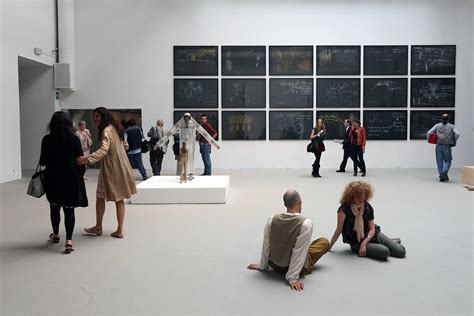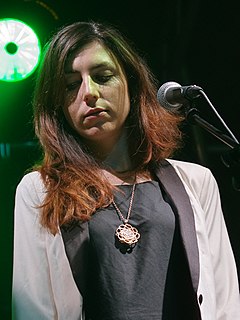A Quote by Dee Hock
All organizations are merely conceptual embodiments of a very old, very basic idea - the idea of community. They can be no more or less than the sum of the beliefs of the people drawn to them; of their character, judgements, acts and efforts.
Related Quotes
Externalists reject any such view. I think that the idea that we can tell, simply by way of reflection, whether our beliefs are justified, is deeply commonsensical. More than that, the idea that responsible epistemic agents ought to reflect on their beliefs, and hold them only if they somehow pass muster, is utterly natural.
You know, an idea is just an idea. There seems to... the kind of epiphanies that you have, like the little sudden bursts of light, they're very small and they're very short and it's the pursuit of the idea that's the important thing. . . . I know a lot of people who have way better ideas than I do that-much more frequently than I do that just can't sit down and actually do it. Ideas are such are a little overrated really; it's the work behind the idea that's the important thing.
I'm talking of the idea, basically very widespread in America, that the less government the better, which is obviously being used to the advantage of the big corporations, but none-the-less has very radical implications. The idea of a people that exercises a great deal of federalist or confederalist control, the ideal of a grass-roots type of democracy, the idea of the freedom of the individual which is not to get lost in the mazes of anarcho-egotism à la Stirner, or for that matter right-wing libertarianism.
I think the very idea of character, of developing not just grit, but empathy and curiosity, emotional intelligence - you know, the things that I want my own daughters to develop - the idea that we're going to get there through rewards and punishments seems completely at odds with the idea of character itself.
On a very, very basic level, I'm definitely pro market because with the market comes the idea of the individual and the idea of specialisation, and I personally like being an individual and choosing my interactions. I don't see culture moving away from that, like back to a farming society. You couldn't do that with the amount of people we have.
It is very hard to enroll people in anything. And there is a very big difference between the words motivate and inspire. Motivation means we have an idea and we are going to carry through on that idea. We work hard at it, and we are disciplined. A highly motivated person takes an idea, goes out there, and won't let anybody interfere with them. Inspiration is exactly the opposite. If motivation is when you get hold of an idea and carry it through to its conclusion, inspiration is the reverse. An idea gets hold of you and carries you where you are intended to go.
Notable enough, however, are the controversies over the series 1 - 1 + 1 - 1 + 1 - ... whose sum was given by Leibniz as 1/2, although others disagree. ... Understanding of this question is to be sought in the word "sum"; this idea, if thus conceived - namely, the sum of a series is said to be that quantity to which it is brought closer as more terms of the series are taken - has relevance only for convergent series, and we should in general give up the idea of sum for divergent series.
A character does seem to have a life of its own, but I have what I'd describe as a very fluid relationship with them - as I'm thinking of what they will be like, they shift in and out of focus - they are a projection of some idea inside of me, even if a character is inspired by an actual person, I'm well aware that it is not that person. My job is to identify the essence of the character, and to bring them to life long enough to commit the acts, say the words or simply "be" in a way that allows them to affect and be affected by other elements and events in the imaginary world of a story.
I have one very basic rule when it comes to "good ideas". A good idea is not an idea that solves a problem cleanly. A good idea is an idea that solves several things at the same time. The mark of good coding is not that the program does what you want, it's that it also does something that you didn't start out wanting.



































